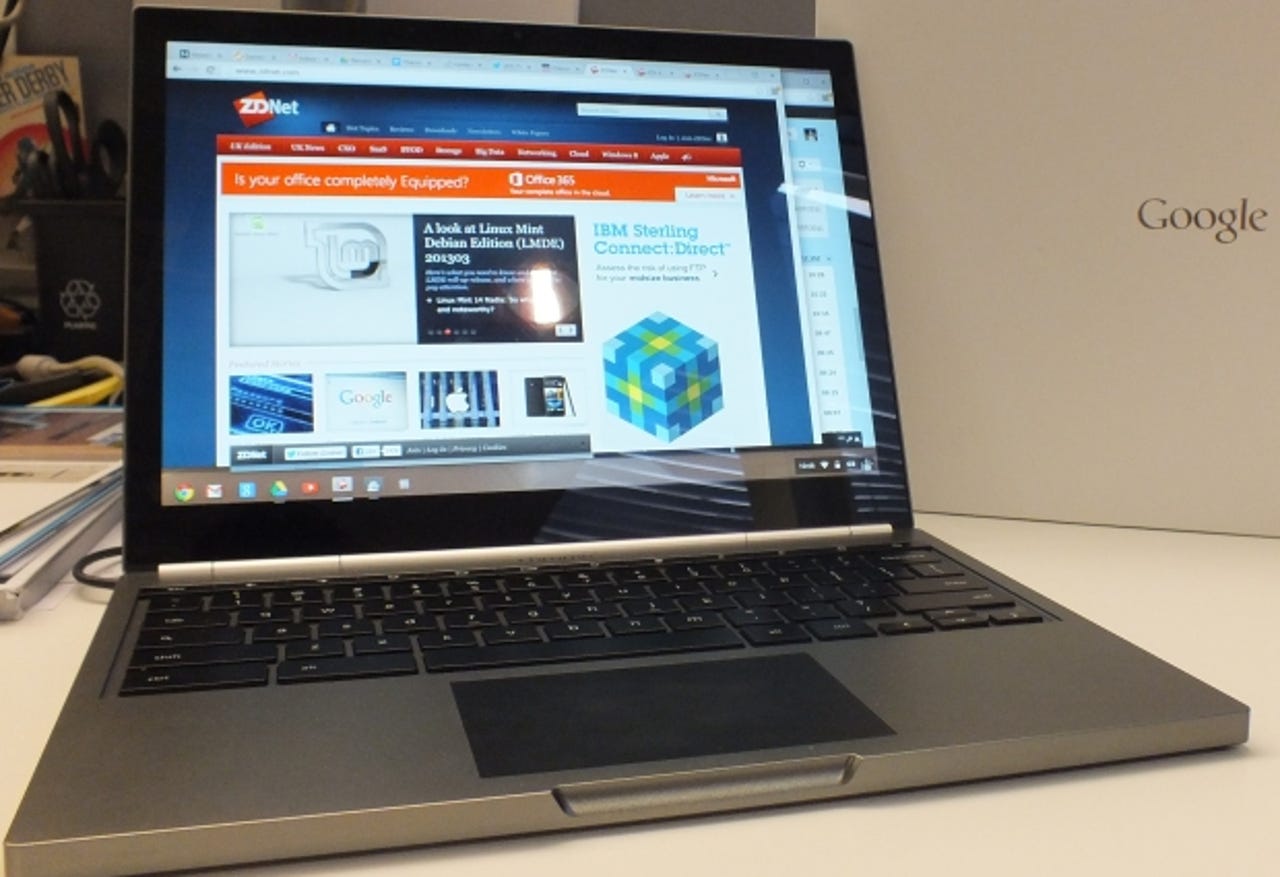Buy a Chromebook Pixel today? No way. But tomorrow could be a very different story

The Chromebook Pixel is the highest profile Chromebook out there. At just under $1,300, it's easily the most expensive too, and at the heavier end of the spectrum. It really is quite a piece of kit: on several occasions I've had to fend off colleagues' covetous advances to get some alone time with the machine.

The reason for some of the Pixel's appeal (and that extra weight) is its touchscreen and anodised aluminium chassis design, which includes a backlit keyboard and glass touchpad. The glass touchpad gives the Pixel "exceptional smoothness and accuracy", Google reckons. And it's not wrong.
Does the Pixel really need a touchscreen?
Not that you'll be relying on the touchpad's exceptional accuracy too much if you use the touchscreen - and, if you're used to using Windows 8, there's a good chance that you'll be reaching out to paw at the screen more than you might have imagined.
However, while touchscreens make sense for Windows 8 hardware given Microsoft has redesigned elements of the operating system to be geared around touch input, the Pixel is a slightly different proposition, and that's one of my issues with it.
Whereas on Windows 8 different swiping actions perform different tasks — say, opening the Start menu by swiping right to left or switching back to the last-used app by swiping left to right. But in Chrome OS, there are very few specific touch features - and therefore reasons for the touch input in the first place. Sure, you can use it to navigate between windows, resizing them along the way, and some might even support other features such as pinch-to-zoom, but right now, very few do. Until that changes, there's almost no need for the touchscreen at all.
As things stand today, the web is still largely designed for use with a keyboard and mouse — it's all search boxes and small text links to navigate, neither of which is suited to an all touch input. Perhaps by the time the Chromebook Pixel 2 makes it onto shelves there may be enough apps that support touch input to make a touchscreen worthwhile, but for now, it simply adds expense and weight.
Hardware overkill
Almost without exception, there are very few concerns with the rest of the hardware - although I would take a micro HDMI output rather than a Display Port plus adaptor, which wasn't included in the box.
In fact, I (like many others) would say the hardware is almost overkill for the rest of the laptop. The beauty of the average Chromebook (and they haven't been a runaway success so far, by any means) is the price. For around £200, you can have a fully functional laptop that allows you to do everything you'd normally do in the browser, with a reasonably long battery life and quick boot time.
The audio playback was surprising too with loud, if not crystal clear sound, coming through the speakers. Sadly, it showed a trait seen in many, many other laptops too - it got rather warm under the USB ports when in use. Still, that didn't stop me using it as my everyday work laptop for a little while when my underpowered everyday machine became too slow to bear.
While the Pixel mostly matches up to what its rivals can offer (although I would have expected a more generous battery life: with the screen on around 70 percent brightness, it lasted for around two and half hours or so of continuous playback), it can't compete in the most crucial area: the price.
The verdict
It's hard to sell the idea of a Chromebook Pixel to a lot of people. At first glance it has a lot in common with a laptop — you can do most of the things you'd want to do on laptop on a Pixel — but, unlike a laptop, you can't use Skype or download any of the other apps traditionally found on such machines.
However, the biggest difference most people will notice between a Pixel and an average laptop is simply the price. People will accept cut-down functionality at a cut-down price, but combine cut-down functionality with an asking price larger than a MacBook Pro's and it all starts to make a lot less sense.
There's really very little to consider in making this decision. I'd love a Chromebook Pixel: it's definitely stylish, it has a reassuring quality feel to it and there's not any sign of the flex or paint rubbing off that I quickly saw in the Samsung Chromebook (which retails for around £230). I like the fact it boots quickly, and most of what I want to do, I do in the browser.
And still, I couldn't even consider buying one now. Perhaps when there are more touch-enabled apps it would be more enticing, but I could never hand over that amount of money for what I'd perceive to be a bit less than a laptop.
Right now, it feels like a concept machine, a glimpse at what could — and likely will — be, rather than a machine for today's needs. But give it a year or so and I'd bet we'll see the premium Chromebook market making a lot more sense.